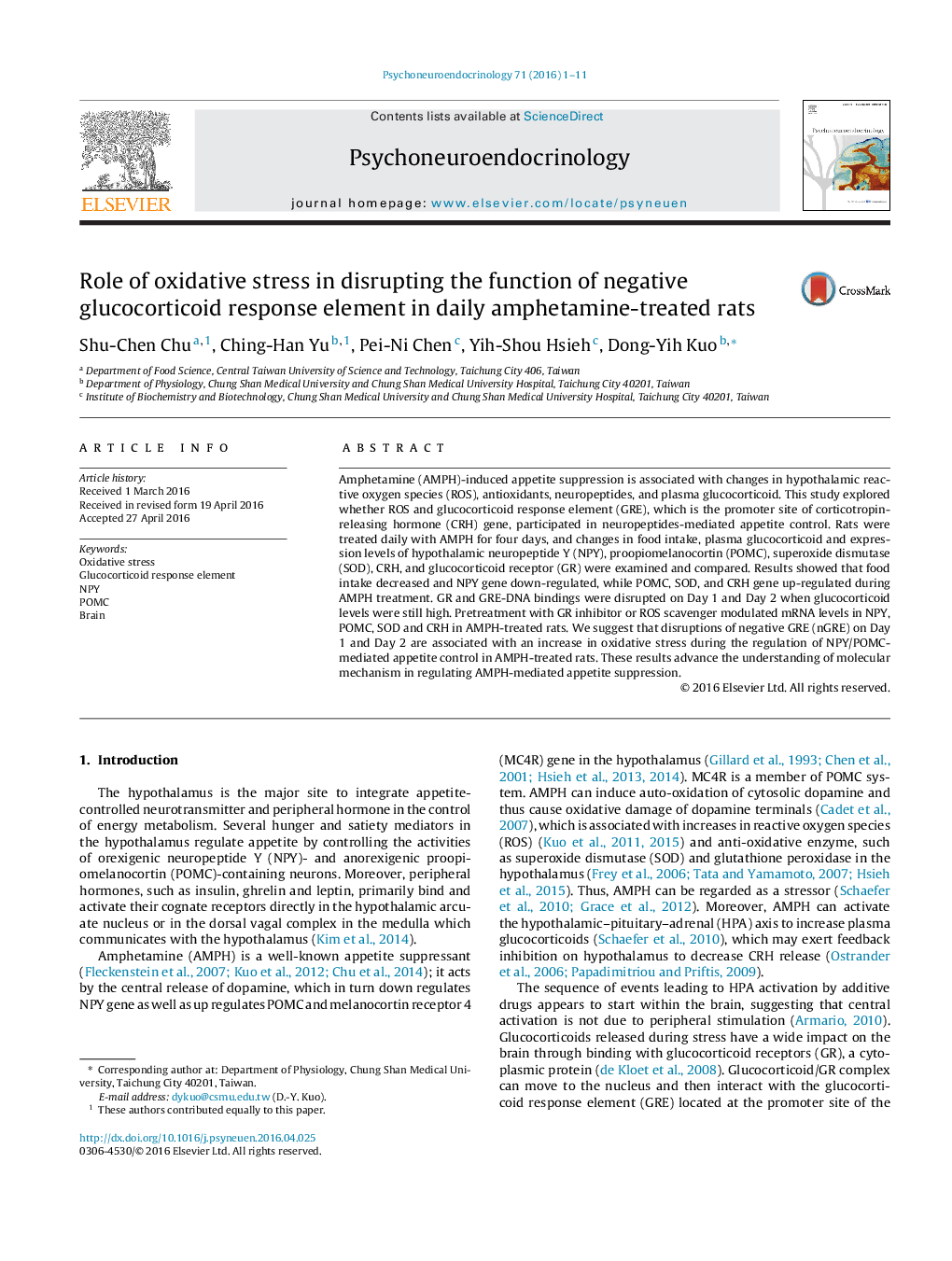| کد مقاله | کد نشریه | سال انتشار | مقاله انگلیسی | نسخه تمام متن |
|---|---|---|---|---|
| 6818008 | 546997 | 2016 | 11 صفحه PDF | دانلود رایگان |
عنوان انگلیسی مقاله ISI
Role of oxidative stress in disrupting the function of negative glucocorticoid response element in daily amphetamine-treated rats
ترجمه فارسی عنوان
نقش استرس اکسیداتیو در اختلال عملکرد عنصر پاسخ گلوکوکورتیکوئیدی منفی در موش های صحرایی تحت درمان با آمفتام روزانه
دانلود مقاله + سفارش ترجمه
دانلود مقاله ISI انگلیسی
رایگان برای ایرانیان
کلمات کلیدی
موضوعات مرتبط
علوم زیستی و بیوفناوری
بیوشیمی، ژنتیک و زیست شناسی مولکولی
علوم غدد
چکیده انگلیسی
Amphetamine (AMPH)-induced appetite suppression is associated with changes in hypothalamic reactive oxygen species (ROS), antioxidants, neuropeptides, and plasma glucocorticoid. This study explored whether ROS and glucocorticoid response element (GRE), which is the promoter site of corticotropin-releasing hormone (CRH) gene, participated in neuropeptides-mediated appetite control. Rats were treated daily with AMPH for four days, and changes in food intake, plasma glucocorticoid and expression levels of hypothalamic neuropeptide Y (NPY), proopiomelanocortin (POMC), superoxide dismutase (SOD), CRH, and glucocorticoid receptor (GR) were examined and compared. Results showed that food intake decreased and NPY gene down-regulated, while POMC, SOD, and CRH gene up-regulated during AMPH treatment. GR and GRE-DNA bindings were disrupted on Day 1 and Day 2 when glucocorticoid levels were still high. Pretreatment with GR inhibitor or ROS scavenger modulated mRNA levels in NPY, POMC, SOD and CRH in AMPH-treated rats. We suggest that disruptions of negative GRE (nGRE) on Day 1 and Day 2 are associated with an increase in oxidative stress during the regulation of NPY/POMC-mediated appetite control in AMPH-treated rats. These results advance the understanding of molecular mechanism in regulating AMPH-mediated appetite suppression.
ناشر
Database: Elsevier - ScienceDirect (ساینس دایرکت)
Journal: Psychoneuroendocrinology - Volume 71, September 2016, Pages 1-11
Journal: Psychoneuroendocrinology - Volume 71, September 2016, Pages 1-11
نویسندگان
Shu-Chen Chu, Ching-Han Yu, Pei-Ni Chen, Yih-Shou Hsieh, Dong-Yih Kuo,
